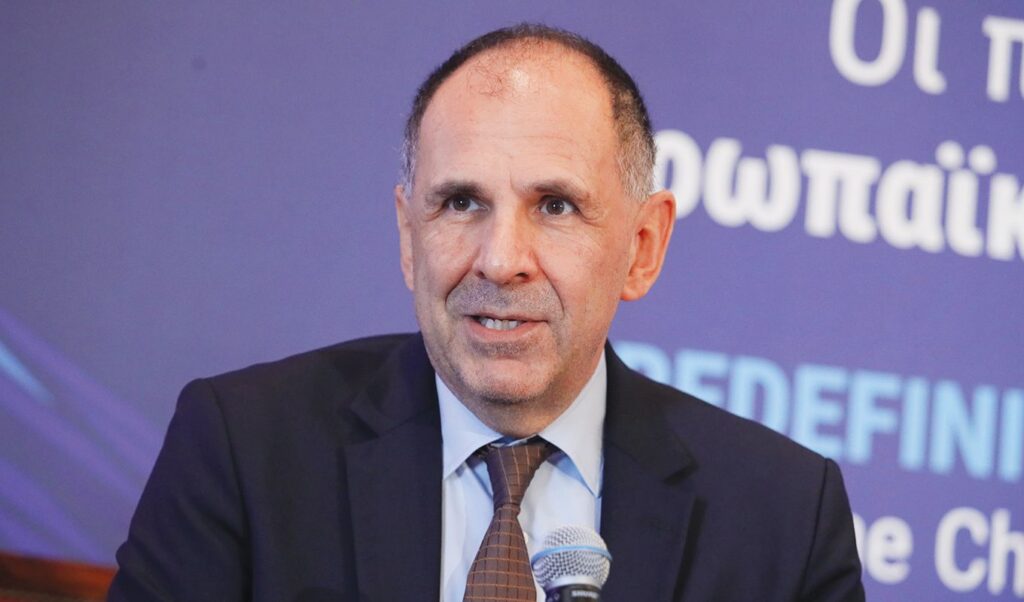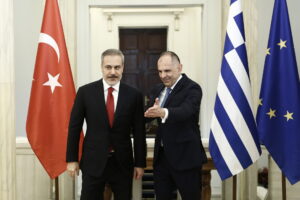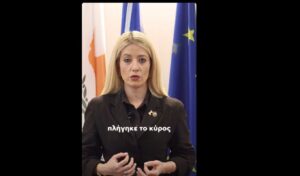“The era demands regional cooperation and Greece at this given moment has both the leadership position to impose such cooperation for its benefit,” said Foreign Minister Giorgos Gerapetritis during the Institute of International Relations (IDIS) meeting “Athens Security Forum 2025”.
Read: Gerapetritis: “It’s time for Greece to take major initiatives, with confidence and without phobias”
Gerapetritis: Greece can take accelerating role in Eastern Mediterranean
Minister Gerapetritis noted that Greece, through the Prime Minister, proposed a major regional cooperation in the Eastern Mediterranean, which includes Eastern Mediterranean countries with which Greece shares maritime borders. This proposal has a very specific agenda and themes, addressing issues ranging from civil protection and marine environment protection to migration, but also including difficult issues such as connectivity and maritime zone delimitation. He emphasized that it’s obviously not easy to implement, as there are issues like Turkey’s position regarding Cyprus or the situation in Libya, where there’s division concerning governance. However, he added: “We believe the problems are not insurmountable; on the contrary, it’s time for responsibility for everyone. We will explore the possibility of forming this regional cooperation. The prerequisite for formation is one and only: universal respect for international law, state sovereignty, and European acquis, since two countries are EU members and one country is in pre-accession process.”
He noted that Greece calls on its neighbors “to find a functional relationship where we can discuss and resolve issues that constitute common challenges, because common challenges cannot be solved through unilateral actions”. “Greece currently has both the means and the will to take an accelerating role in the Eastern Mediterranean, and I think it will be beneficial,” he emphasized. He stressed that regional cooperation doesn’t function as mutually exclusive to bilateral relations, and bilateral issues continue to be subjects of bilateral dialogue. “With Turkey, over the past two and a half years there has been structured dialogue, which certainly hasn’t produced results yet regarding our major underlying difference that reproduces problems – the delimitation of continental shelf and EEZ,” he noted. “We have reached a very high level regarding lower-level political issues and people-to-people politics. […] We hope that by year’s end we will have completed our contacts to explore whether there’s willingness from all parties to proceed with this scheme, then next steps will be initiated, possibly with signing some memorandum or meetings at foreign minister level or technical teams to elaborate positions,” he added.
“It’s time for responsibility for everyone. Unfortunately, I hear very digestible proposals, I hear condemnations of Greek foreign policy, I hear very easy solutions for complex issues,” he underlined. “It’s very important to have deep understanding of foreign policy issues. What happened with energy cooperation between Greece and the US wasn’t coincidental.” The Foreign Minister emphasized that “Greek foreign policy has reached a level of international self-sufficiency and confidence that doesn’t need to be externally determined” and added: “Greece currently doesn’t need to operate diplomatically with one eye on what’s happening in Turkey. On the other hand, regarding Greek-Turkish relations, I don’t believe there’s currently recession or that we’re buying time.”
Gerapetritis: Much has been achieved in two years in bilateral trade
He reminded that the past two years have been very dense diplomatically, but only two years have passed since the Athens Declaration for friendship and good neighborly relations was signed. “In two years, much has been achieved in bilateral trade, in preventing migration flows, coordinating civil protection, regarding reduction of Greek airspace violations that gives relief to the Hellenic Air Force, and mainly what has happened is preventing crises, because no one wants crises under current diplomatic geopolitical circumstances.”
“Obviously we haven’t managed to tackle our major thorn, namely EEZ and continental shelf delimitation, but it’s only been two years. I feel there’s still possibility to find ways to discuss these issues, because lack of delimitation according to international law always reproduces tensions,” he emphasized. He noted that Greece has ensured over the past two years to put on the table “things some said we were afraid to raise: Maritime Spatial Planning, Marine Parks, Chevron and Exxon, and full confidence. And with this confidence we will proceed. We want peace and prosperity, we want cooperation with all our neighbors, we will pursue it. Obviously without compromises on national red lines. No Foreign Minister would do that, nor will I ever.”
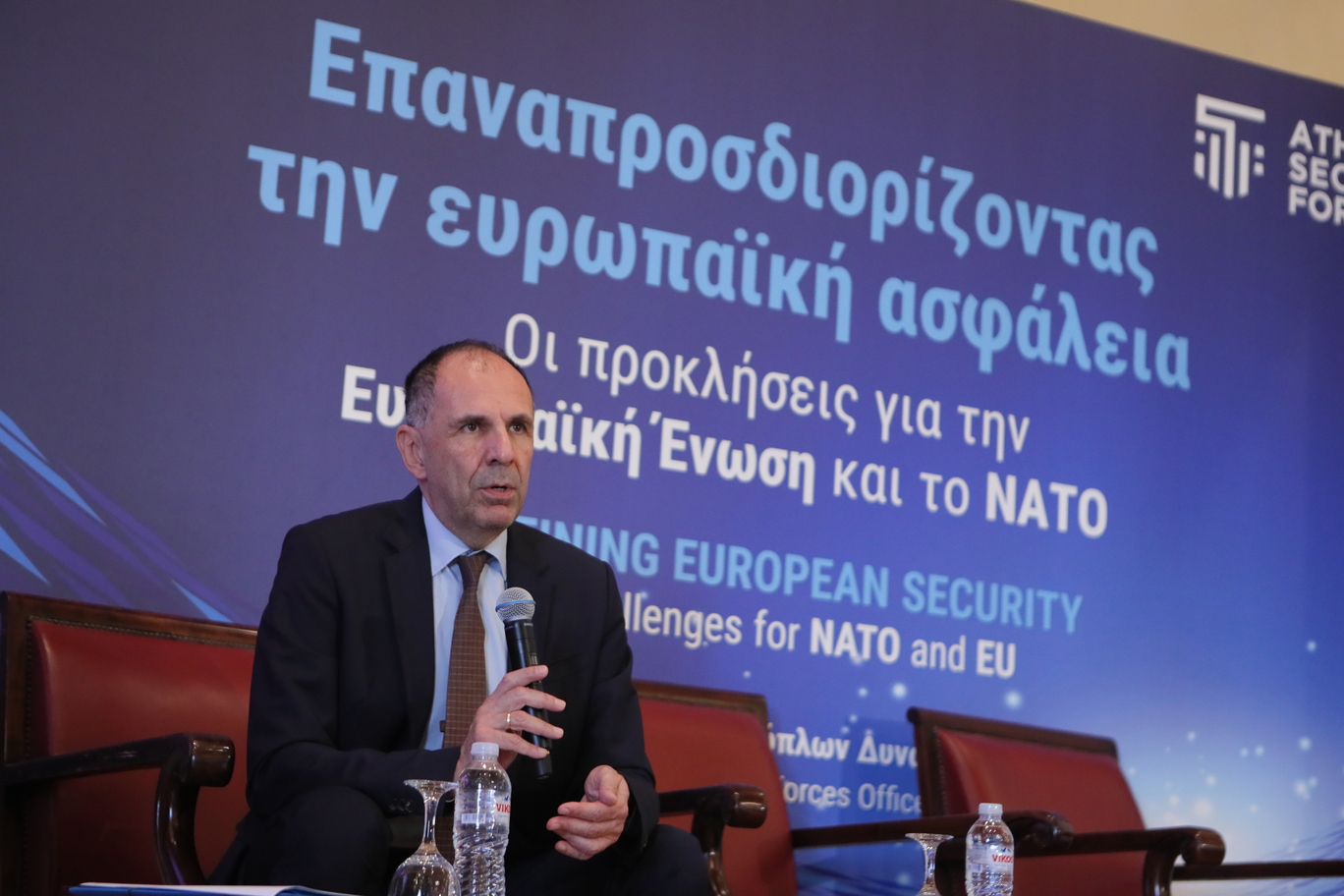
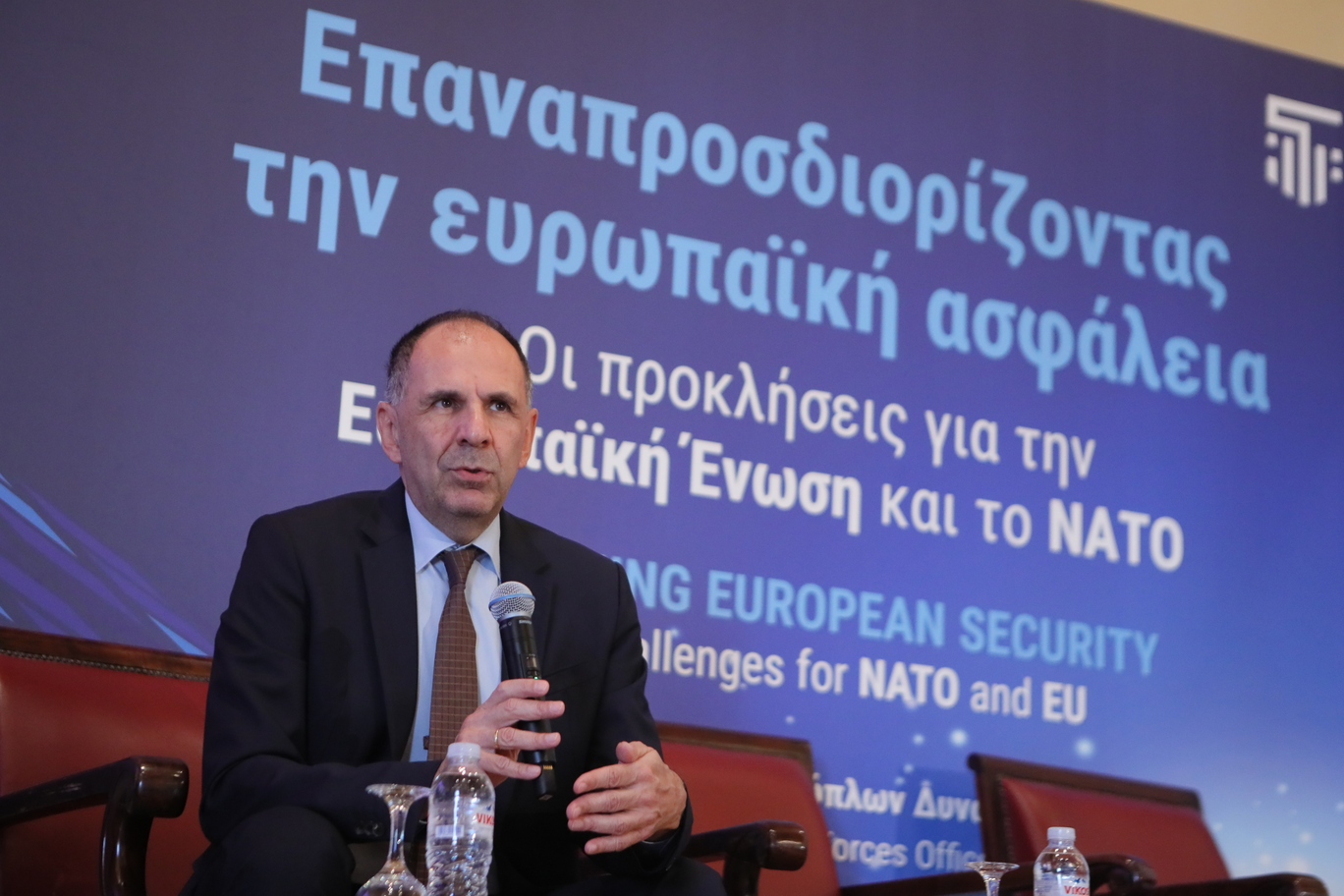
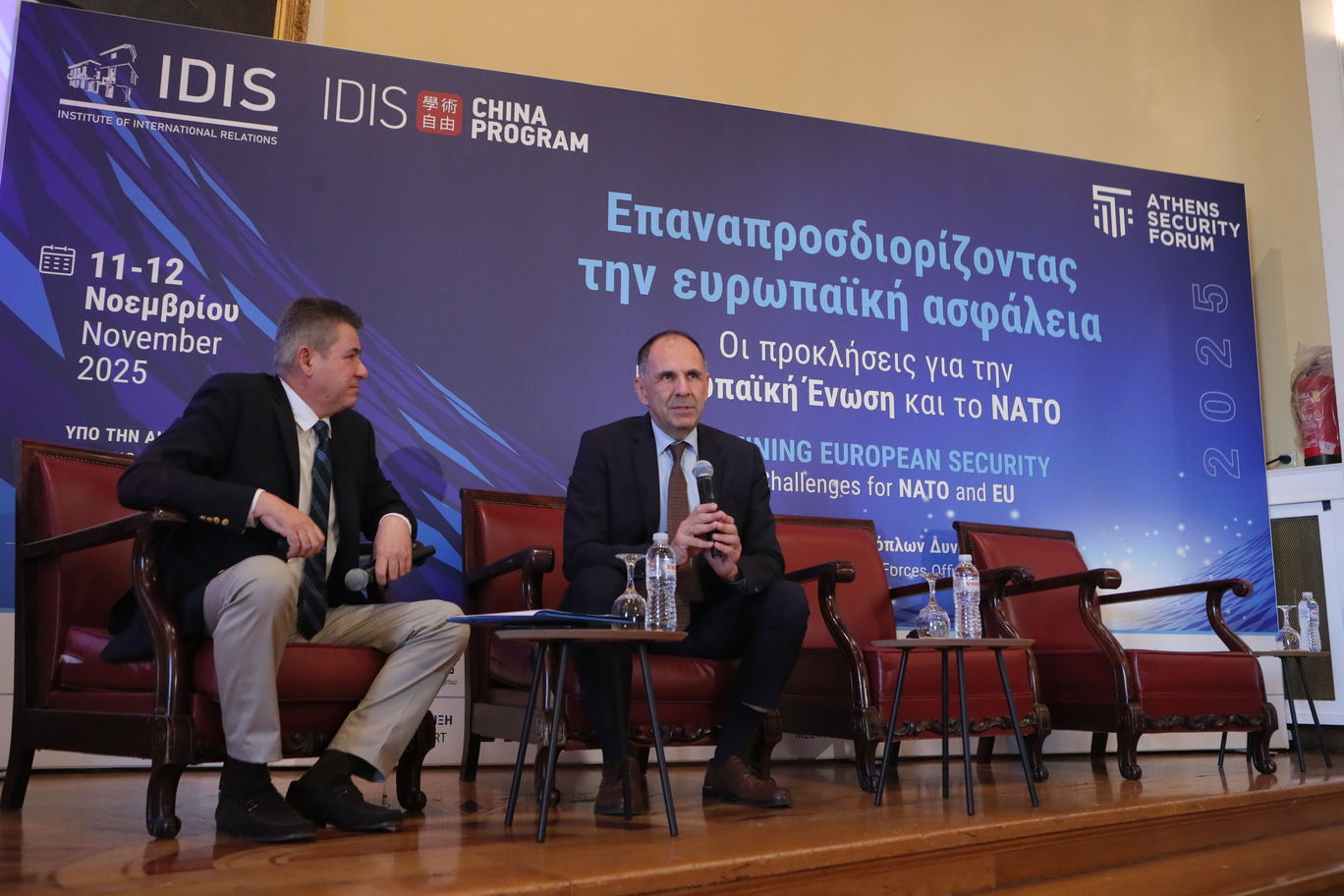
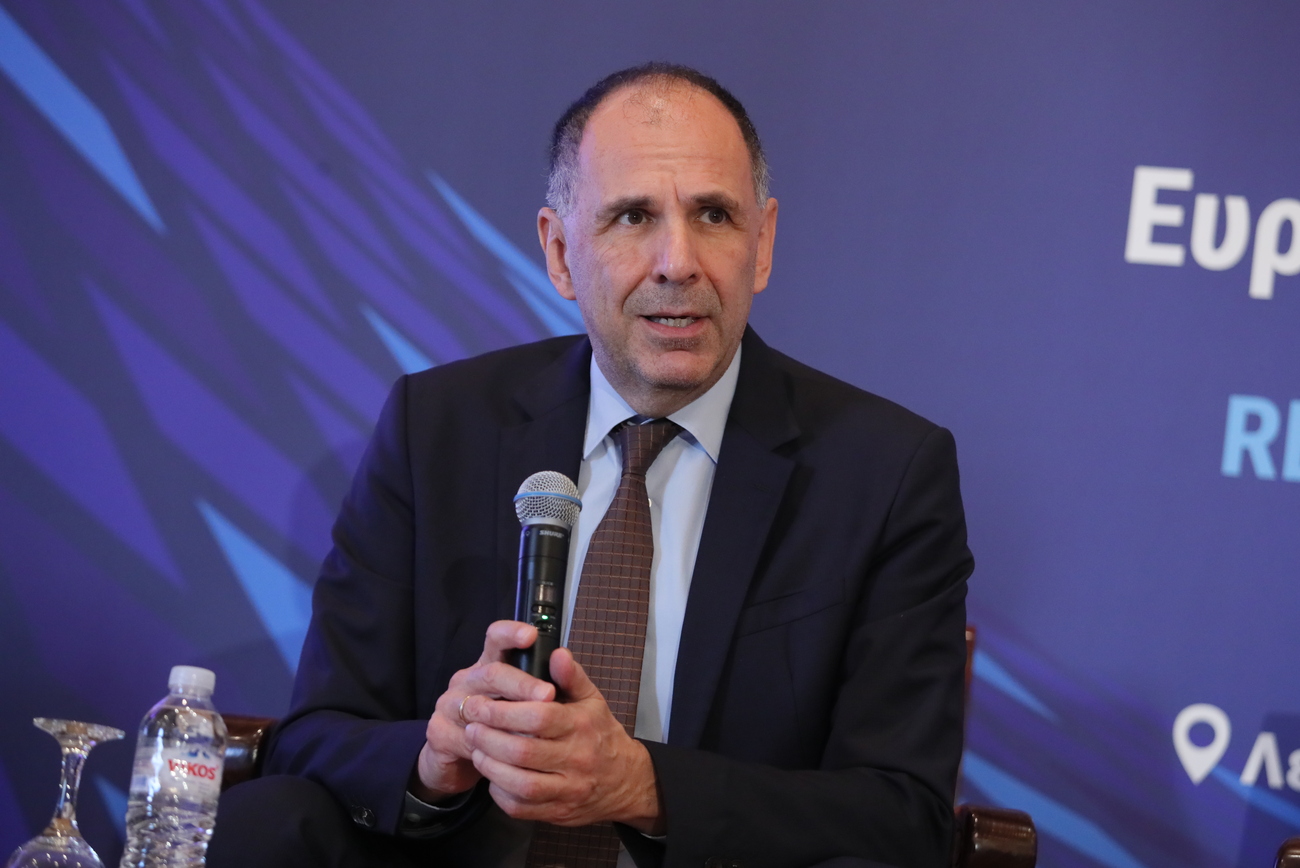
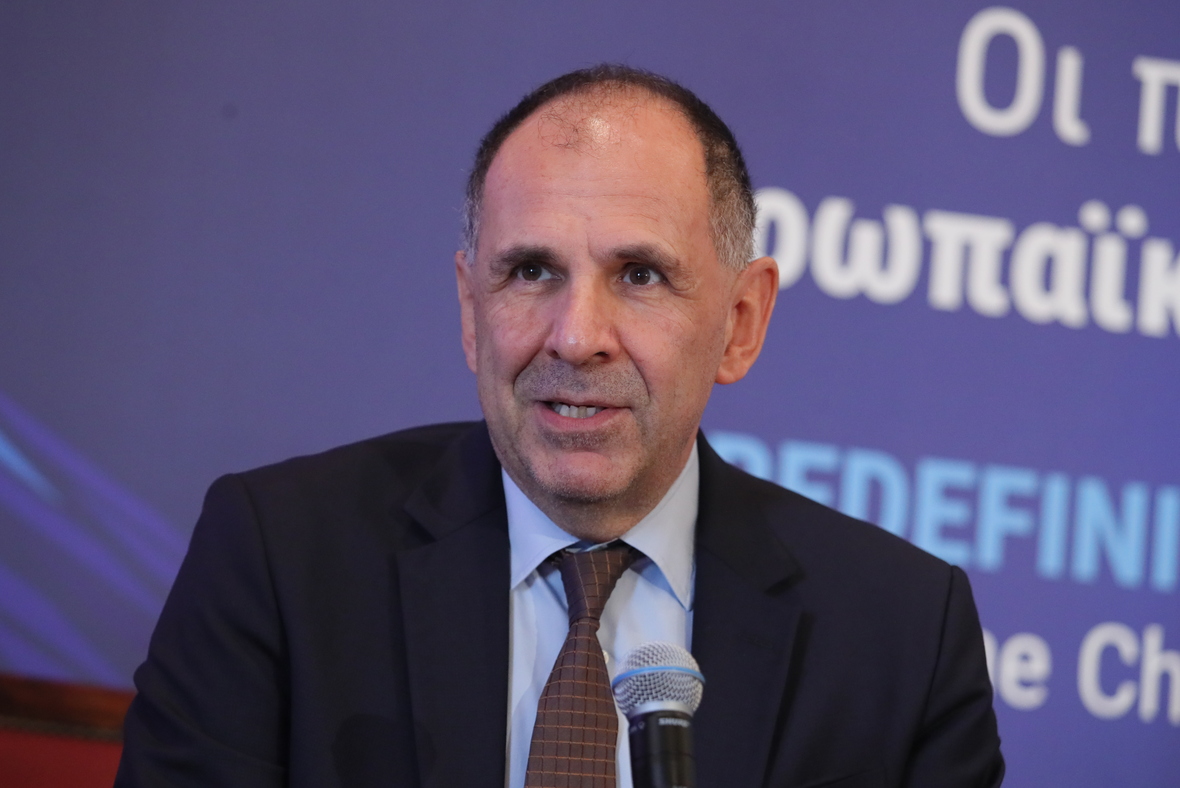
Energy becomes a smart power tool
Referring to the international scene, Minister Gerapetritis emphasized that this is the most complex and difficult time to be Foreign Minister in Europe and worldwide, as diplomatic relations morphology has changed significantly over the past three years. “The certainty of regional and local crises with purely local characteristics no longer exists, whether regarding armed conflicts or other phenomena like climate crisis, food crisis, migration crisis, health crisis. Whatever happens worldwide has supra-local character and affects much more than in the past. So the locality of crises is changing.”
Furthermore, he noted, we’re at a point in world history with the highest number of armed conflicts globally, with over 60 recorded conflicts. “We see international organizations retreating regarding their actual intervention in crises, and instead space is created for intervention by either powerful states or alliances with different characteristics from traditional international organizations. We also see a shift in the balance of responsibility and security guarantees worldwide.”
He noted that the post-war balance, where essentially the United States had a largely guarantor role in European security, is now changing radically. Simultaneously, the field of actual power is shifting considerably, with emerging powers like India taking leading roles in the Global South. “Hard power now seems to have primacy. All countries are arming to create deterrent force that will have, beyond actual character, an imposing character in the neighborhood, power projection,” he noted, adding that classical diplomacy is somewhat marginalized.
“Between the two forms, hard and soft power, what we call smart power emerges. Smart power acquires a completely hybrid form of power, operating both as defense, deterrence, but also in logic of essentially imposing values,” he emphasized. “A characteristic example is the energy issue. What emerged with great emphasis from Russia’s aggressive war, from Russia’s invasion of Ukraine, is that over-dependence on critical infrastructure should never be created.”
“Energy becomes simultaneously a tool of soft and hard power, but certainly smart power. This is the message Greek diplomacy sent with what we saw last week – agreements for the vertical corridor, natural gas extractions, and agreements that make Greece not just a hub, but an export provider of other countries’ self-sufficiency in the energy field,” he added.
Internal security cannot be approached with naivety
He noted that Greece’s perception was always that “we stand on two feet, Eastern and Western. Our EU entry determined not only our country’s course but also people’s consciousness.” “Internal security is not an issue we can approach with naivety. I think we must rely on the West, Europe, transatlantic cooperation.” “There was always great reservation, mainly due to the American factor and what it brought, especially the military dictatorship. Today, geopolitical and geostrategic issues have differentiated so much that Greece’s full Western integration actually constitutes the condition of its security. Greece, due to its geography, always made very large defense investments, namely in hard power,” he said.
“Unfortunately, we belatedly entered the logic that hard power, our defense, is one parameter for our peace and prosperity, but not the only one and perhaps not even the decisive one,” he emphasized. “Today, more than ever, we understand the meaning and importance of belonging to an international community. Greece today is at the highest diplomatic level it has ever been. It belongs to the EU and NATO hard core, is an elected UN Security Council member. It has established alliances not only regionally, has strategic alliances with Israel, Saudi Arabia, all Gulf countries, strategic alliance with India, and certainly our US relationship is at optimal level.”

